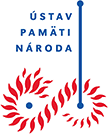European Remembrance. The second Symposium of European institutions dealing with 20th-century history, Berlin, 10-12 October 2013
The second international European Remembrance symposium take place on 10-12 October in Berlin. Almost 200 representatives from 120 institutions and non-governmental organisations focussing on 20th-century history from 23 European countries discussed the form and nature of the contemporary culture of remembrance and associated historical education. The event was organised by European Network Remembrance and Solidarity, the Federal Foundation for the Reappraisal of the SED Dictatorship, and the European Solidarity Centre. Nations Memory Institute is one of the partners of this symphosium.
The idea behind the symposium arose from the conviction that there is a need for common and multidimensional reflection on 20th-century history, taking into account various viewpoints and sensitivities, alongside differing historical experiences and their interpretation. The overriding aim of the event is to support existing projects, to create a permanent forum for exchange of best practices, and to provide impetus for new initiatives which could serve to ensure better understanding of the various perspectives from which European history is viewed.
This year’s symposium is entitled ‘How much transnational cooperation does European remembrance require? Caesuras and parallels in Europe’, and was opened with two keynote addresses: by Keith Lowe, a British historian and writer, author of Savage Continent: Europe in the Aftermath of World War II, and by Prof. Dr Hab. Andrzej Paczkowski of the Institute of Political Studies of the Polish Academy of Sciences, and Collegium Civitas, who will discuss the various ways in which historical memory and remembrance are shaped in Eastern and Western Europe.
During the three-day event, delegates took part in discussions and hear addresses by historians and researchers focussing on 20th-century remembrance, including lectures on the landmark events for European history in 1914, 1939 and 1989, given by Prof. Dan Diner (Leipzig University, Simon-Dubnow-Institut) and György Dalos, a Hungarian historian and writer living in Berlin. The final lecture will be given by German political scientist and politician Gesine Schwan.
A detailed conference programme can be found online at www.europeanremembrance.enrs.eu.
The cycle of European Remembrance symposiums began in September 2012 in Gdańsk, where over 100 representatives of 66 institutions from 14 countries took part. In 2014 the symposium will take place in Prague.
European Network Remembrance and Solidarity
The Network is since 2005 an international organization supported by the governments of Poland, Hungary, Slovakia and Germany. It concentrates its efforts on the support of academic and educational projects. The most important aim of the Network is strengthening international cooperation between different institutions dealing with the history of the 20. century.
www.enrs.eu
Federal Foundation for the Reappraisal of the SED Dictatorship
The Federal Foundation was founded in 1998 by the German Bundestag. It has the legal mandate to work up the causes, history and effects of the dictatorship in Soviet Occupation Zone and GDR. It promotes historical projects, memorials, projects of school education and scientific researches, and supports the counseling of victims of the communist dictatorship.
www.bundesstiftung-aufarbeitung.de
European Solidarność Center, Gdańsk
The European Solidarność Center in Gdańsk is both a museum and an education and research center established 2007. The Center concerns itself with the history of Solidarność movement and promotion of civil society, democracy, as well as freedom and solidarity in the still authoritarian countries.
www.ecs.gda.pl
